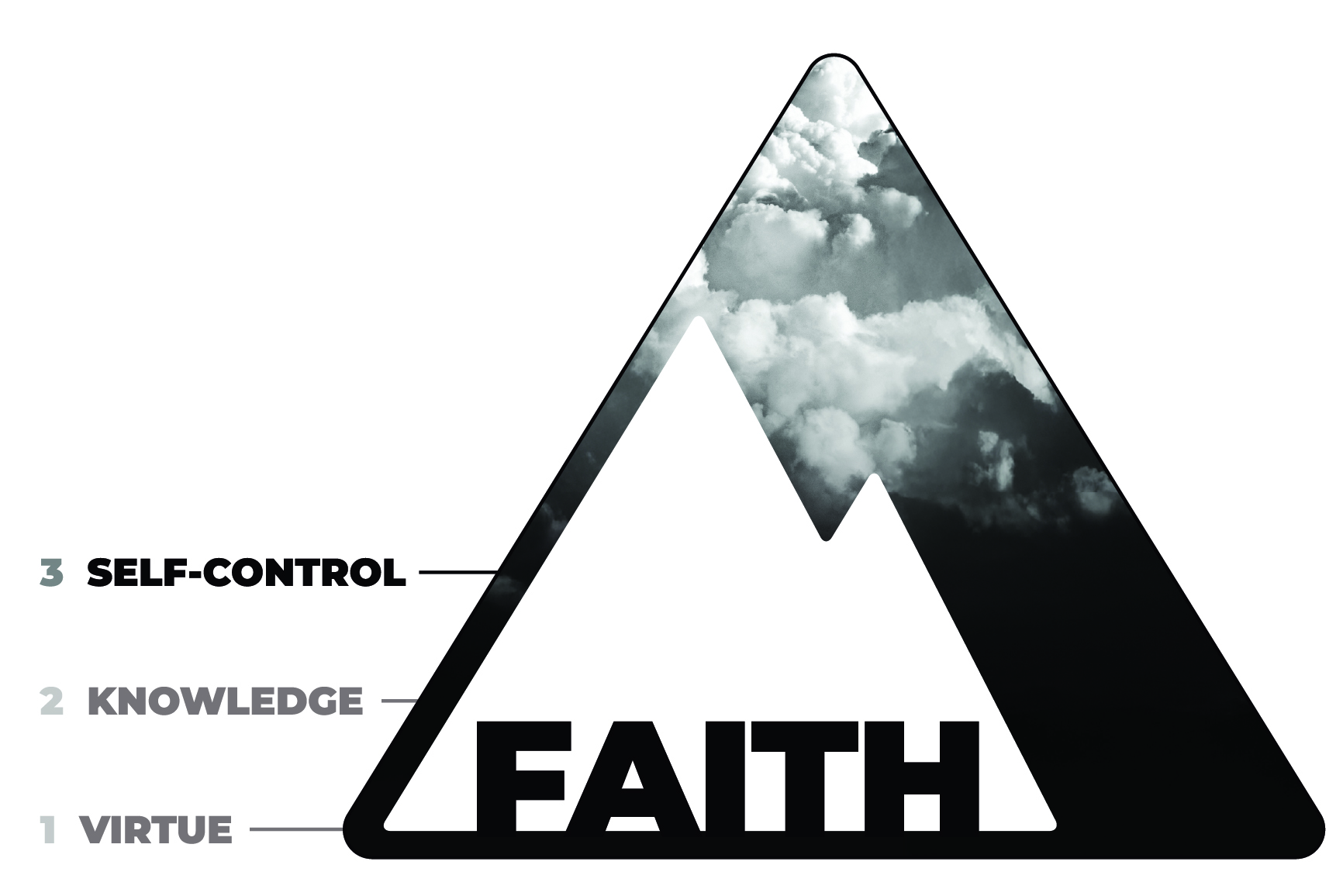Hiking the Clouds: The Journey to Mature FaithSample


The Waypoint of Self-Control
A humble knowledge of thyself is a surer way to God than a deep search after learning.
– Thomas à Kempis
Discipline is destiny.
Many of us think discipline is all about willpower. If we just try harder, we can overcome sin, control our habits, and fix our flaws. But Scripture and experience tell a different story:
Real discipline flows from self-awareness and surrender to God’s power, not sheer effort.
In my mid-twenties, I was doing my best to serve God and obey him. But I eventually had to face a reality I didn’t want to admit: I had an anger problem. I knew verses like, “the anger of man does not produce the righteousness of God” (James 1:20), and I tried to overcome it with prayer and determination. But I kept failing.
A counselor helped me see the truth—anger was not the core problem. It was a reaction. Underneath it were deeper fears and wounds I had never acknowledged. Facing that reality was painful, but it opened the door to transformation.
That’s the heart of the waypoint of Self-Control. It’s not about suppressing behavior or building more will power—it’s about tracing our reactions back to the hidden desires, wounds, and fears driving them. Until we deal with those deeper waters, the purposes in our heart (Proverbs 20:5), discipline remains an exhausting cycle of willpower and failure.
Paul expressed this struggle honestly: “I do not understand what I do. For what I want to do I do not do, but what I hate I do… it is no longer I myself who do it, but it is sin living in me” (Romans 7:15–17).
Awareness of God’s law (Virtue and Knowledge) is not enough. Something deeper has to change.
That deeper change begins when the Holy Spirit shines light on our inner world—our thoughts, desires, emotions, and wounds. These originate in our soul. (Interestingly, the Greek word used for soul is psuche, where we get the word psychology.)
Think of it like standing by a river. You hear children being swept downstream, so you jump in to rescue them. But soon another child appears, and another. At some point, someone has to run upstream and ask: “Where are they being thrown in?” Self-control is going upstream to find the root causes behind our reactions.
This requires courage, because it means facing pain. Suppression is easier. Religion can even mask our brokenness—we memorize verses, do “the right things,” and hide our struggles. But unprocessed pain always leaks out in anger, addiction, avoidance, or control.
That’s why loss and failure are often the door to growth in this stage. When willpower isn’t enough, we are forced to admit: “I cannot change myself.” And that humility is where transformation begins.
The good news is the Spirit meets us there. His Spirit sanctifies our soul—our thoughts, emotions, and desires—bringing them into alignment with God’s love (1 Thessalonians 5:23).
At this stage, practicing spiritual disciplines helps us walk this path. Prayer, solitude, worship, and fasting are not about earning God’s favor, they’re about creating space for His Spirit to do the inner work from the inside out. Spiritual disciplines allow God’s spirit to work in our soul and out into our actions.
Internal restraint makes external rules unnecessary. As my dad told my sister when she asked about curfew: “When you come in at a reasonable time, you won’t need a curfew.” True freedom is inner transformation.
One caution: Self-discovery can become addictive. Endless personality tests, self-help books, or constant “breakthroughs” can keep us circling the stage instead of moving forward. The mark of real maturity here is not endless introspection—it’s growing by releasing wounds that keep us from giving and receiving love.
This requires forgiveness. Facing our wounds and releasing those who hurt us purifies the deep waters of our soul. Without forgiveness, growth stalls. With it, we begin to walk in freedom. (If you’re struggling to forgive, check out The Power to Forgive on YouVersion.)
Self-awareness is not self-absorption. It is wisdom. It’s understanding our soul. When the Spirit heals our inner world, love begins to flow through us naturally. What once required striving becomes overflow.
Scripture
About this Plan

When the journey of faith often leads into uncertainty—it doesn’t mean you’re lost, it means you’re climbing. Hiking the Clouds explores the second half of faith: less about certainty and more about surrender. Joël Malm draws from 2 Peter 1 to map out waypoints of spiritual growth. It’s for believers rethinking how they experience God as they walk on the journey to maturity. And maturity is walking in Agape.
More
We would like to thank Joël and Jonathan Malm for providing this plan. For more information, please visit: http://joelmalm.com









